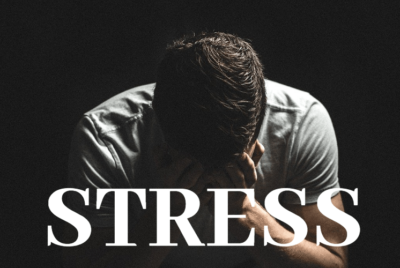40 Ways on How to Cope with Stress

Everybody deals with stress every single day. Typically we can handle small stresses and unaffected by it. But when stress becomes consistent, persistent, and unrelenting, then it can overwhelm us.
But as with everything in life, there are always strategies to overcome anything. There are simple ways to manage your stress levels effectively so that they never get to a point where you find yourself crippled by it.
In general, we deal with stress by either avoiding the stressor, altering the stressor, adapting to the stressor, accepting the stressor.
There’s no possible way to avoid stress entirely. But there are ways of learning to identify stress triggers, manage stress levels, and cope with the stress and anxiety you simply can’t avoid.
There are many ways you can improve your life quality by learning how to manage your stress levels properly.
The effectiveness of these coping strategies is dependent on the person and the stress. But we must learn to handle our stress. Why do you ask?
When we are undergoing stress, our hypothalamus releases a hormone called corticotropin-releasing hormone to help our body increase breathing and blood circulation so we can either fight or flight. If they are in our bodies for too long, these stress hormones make the adrenal glands release another hormone called cortisol, a potent anti-inflammatory. Cortisol lingering in our bodies is not good because they are anti-inflammatory. They will decrease our immune system’s ability to fight infection, making us more vulnerable to infection and disease.
So you see, knowing how to deal with stress is critical as it can save your life.

Ways on How to Cope with Stress
1. Positive Mental Attitude. Our outlook on life will spring you forward or hold you back.
2. Exercise. As the song goes, ” Let’s get physical”.15 to 30-minutes a day, three times a week increases our overall mood and lowers our stress levels.
Every time we exercise, our bodies naturally release endorphins which give us a boost of energy and help eliminate stress and anxiety from our bodies and minds.
3. Smile, Laughing exercises. Like exercise, smiling and laughing increases endorphins. Laughter gives us a break away from our problems and enhances our sense of well-being. Numerous studies have shown that laughter can help your immune system and decrease stress hormones, constricting blood vessels, and suppressing hormone activity.
4. Watch a funny movie. Researchers at the University of Maryland found that laughing while watching a comedic film causes your blood vessels to dilate by 22 percent. That’s because when you laugh, the tissues forming the lining of your blood vessels expand and make room for an increase in blood flow.
5. Go into nature or just go outside. The fresh air and sun rejuvenate body and mind. Being in nature, or even viewing scenes of nature, reduces anger, fear, and stress and increases pleasant feelings. Going into nature makes you feel better emotionally, but it also contributes to your physical wellbeing, reducing blood pressure, heart rate, muscle tension, and the production of stress hormones.
6. Slow down and take a deep breath. Slow, deep breathing stimulates the parasympathetic system, the part of the nervous system that calms us down.
7. Take a step back and meditate. When we meditate, we reset our minds and our spirit. The relaxation response from our meditation helps decreases metabolism, lowers blood pressure, and improves heart rate, breathing, and brain waves.
8. Take a break, walk around. Walking outside for 20-30 minutes several times per week alleviates stress and gives our mind a boost. Like any other cardiovascular exercise, brisk walking boosts endorphins, which can reduce stress hormones and alleviate mild depression.
9. Get a Massage. When we get a massage, tension, and tightness seep from muscles as the body receives a quiet message to relax.
10. Drink Water. You need to drink enough water for your cells to work properly. Drinking water helps maintain a healthy heart rate and blood pressure. We need adequate fluid to produce lymph, an essential bodily fluid, and a component of the immune system-all systems of the bodywork better in a water-rich environment. So drink up.
11. Stretch. Stretching allows blood to flow through your body; the nutrients in the blood are being carried and spread out throughout your body. Increased blood and nutrient supply also help reduce soreness. That is why we feel so good. Soreness is relieved when we do stretching after working on the computer for hours.
12. Play with our kids and/ or pets. Playing games can help people relax, feel better, and trigger positive emotional responses.
13. Play a sport, jog, run. Endorphins are chemicals produced by the body to relieve stress and pain. They work similarly to a class of drugs called opioids. They are released by activities that increase our breathing and heart rate.
14. Do Creative Activity. A creative activity such as crafting helps focus our mind. It calms our brain and body. Even just gardening or sewing releases dopamine, a natural anti-depressant. Creativity reduces anxiety, depression, and stress.
15. Look at photos of green nature or other pictures that bring out good memories or make you smile. When we look at green nature pictures, stress levels lowered, thanks to the activation of the parasympathetic nervous system – which controls certain rest functions.
16. Read an inspirational quote or a few pages on an inspiring book. A 2009 study at the University of Sussex found that reading can reduce stress by up to 68%. It works better and faster than other relaxation methods, such as listening to music or drinking a hot cup of tea.
17. Quiet, minimize noise. It’s essential to cut out the noise, disconnect, and recharge our mental and emotional batteries.
18. Sleep/take a nap. Sleep affects growth and stress hormones, our immune system, appetite, breathing, blood pressure, and cardiovascular health.” Research shows that lack of sleep increases the risk of obesity, heart disease, and infections.
When we don’t rest enough at the end of our day, our body can tense up, leading to irritability and depression. And when we’re irritable or depressed, we’re stressed. Adequate sleep is the key and is individual to the person. Fours to six hours can be sufficient to one and not enough for the other, so we need to find our median.
On the other hand, oversleeping is not good either because we become sluggish and listless, makes us irritable and stressed out as not getting enough sleep.
19. Food. Another way to relax your body is with food. Try having a banana or two, or a handful of peanuts, or even a turkey sandwich about three hours before bedtime.
These foods contain tryptophan, which after, being consumed, creates melatonin: which makes us sleepy.
Getting the perfect night’s sleep is an easy and natural way to keep stress at bay!
20. Reduce Caffeine Intake. If you’re like me, coffee is a part of my day. Moderation is key. For some people, caffeine may not be a good idea at all. Everyone has a different caffeine threshold, right? Some people can handle a lot, some just a little, and some not at all.
Reducing your caffeine intake, be it in the form of coffee or other high caffeinated beverages, is a natural way to reduce and relieve stress. Just as many of us need caffeine to function after waking up, too much can make us jittery and scatterbrained.
Caffeine can be addicting, and going cold turkey can lead to withdrawal symptoms. So if you plan to cut down on your caffeine intake, do it gradually over time.

21. Put Yourself First. Do not take more than we can handle. We cannot be a ” yes” person just because we want to please everybody.
We can only do so much before burning ourselves out and depleting our creative energy and motivation to excel. Even if we’re someone who thrives under pressure, the truth is, we all have a breaking point.
22. Do Not Procrastinate. Putting tasks off until the last minute can add a tremendous amount of stress to your life, especially if they’re important tasks with a specific deadline. Whatever tasks you need to accomplish, it’s crucial to write them down on a To-Do list or use an online program for us to stay on track. This can be on our personal or work life, or we can even have separate files for both.
23. Listen to Music. When it comes to lowering blood pressure and heart rate, turn to slow-paced instrumental music. For example, classical music with violins or a piano can be very comforting. The soothing sounds will help us feel relaxed and grounded.
24. Break up tasks into smaller tasks. Breaking tasks down helps us to see large tasks as more approachable and doable, and reduces our tendency to procrastinate or defer tasks because we get overwhelmed and do not know where to start.
25. Sing or Dance. It stimulates endorphins and promotes a sense of positivity and wellbeing.
26. Take a Long Drive. When we’re feeling anxious and overwhelmed, sometimes there’s no better way to de-stress than jumping in our car and going for a relaxing drive. Some people do not enjoy driving, and it can bring about a lot of stress. However, for those who enjoy it, driving can be a really good way to de-stress and unwind, and get away from it all even for just a little while.
27. Cut back on Carbs. When you eat carbs, your body breaks them down into simple sugars, which are absorbed into the bloodstream. As the sugar level rises in your body, the pancreas releases a hormone called insulin. If you’re healthy, carbohydrates turn into glucose (blood sugar), which your body uses for energy. Too much sugar in your bloodstream can damage your artery walls, which leads to added inflammation. A risk factor for coronary artery narrowing, which makes it difficult for blood to make it to your heart.
28. Eat Healthy Food to Avoid Junk Food. Junk food is full of sugars. A diet full of processed foods can increase stress levels in our bodies. Unless we immediately use up all those carbohydrates into fuel, such as for a workout, they can quickly turn into insulin and wreak havoc on our body.
29. Have a Clean and Orderly Environment. It reduces stress and depression. Women who described their homes as “cluttered” or full of “unfinished projects” were more depressed, fatigued, and had higher levels of the stress hormone cortisol than women who felt their homes were “restful” and “restorative.”
30. Have plants or a small aquarium around you. Watching fish swim, you feel more positive and relaxed, reducing blood pressure and heart rate.
31. Supplements. Be sure to check with our doctor first when adding any supplement to our diet.
- Passionflower. Passionflower is a naturally occurring plant that boosts gamma-aminobutyric acid (GABA), a compound that lowers brain activity. When taken regularly, passionflower can help improve your quality of sleep and treat Insomnia. A good night’s sleep is a great way to reduce stress. Drink it as a tea, swallow it as a supplement with some water, or you can even find passionflower liquid extract.
- Valerian Root often referred to as Nature’s Valium. This non-habit-forming herb has a tranquilizing effect that also aids in getting a good night’s sleep. Just like passionflower, it also helps with GABA. In addition to that, the valerian root also contains the antioxidant Hesperidin and Linaria. These antioxidants that inhibit excessive activity in the amygdala, which is the part of our brain that responds to stress with fear. It can be taken as a form of a supplement, brew it as an herbal tea, or use pure valerian root extract.
32. Positive Self Talk. When we utter positive affirmation or like to read quotes, our thoughts are mostly positive, more likely an optimist.
33. Walk to a window and lookout. Windows allow us to enjoy as much natural light as possible while still being indoors. Vitamin D plays an essential role in our overall health. According to the National Center for Biotechnology Information (NCBI), vitamin D is absorbed through our skin (and can also be consumed in foods like egg yolks, and fish), transformed into vitamin D3, and metabolizes in the liver and kidney. Vitamin D aids in the health of your nerve, muscle, and immune system.
34. Stay in a room with natural light. The use of natural light has also been proven to produce tremendous health benefits. The power of natural light has a long list of benefits; from the way, or bodies work daily to our mental and physical well-being.
35. Have flowers, plants, or a fresh, summer scent. Flowers have an immediate impact on happiness. They also have a long-term positive effect on our moods. We feel less depressed, anxious, and agitated after receiving flowers, and demonstrated a higher sense of enjoyment and life satisfaction.
36. Vent/call a friend, colleague. Immediate relief. It feels great to let it all out! Especially when you’ve been holding in stress, venting about the daily grind is a powerful release mechanism.
37. Journal, write things down. Writing about stressful events helps you come to terms with them, acting as a stress management tool, thus reducing the impact of these stressors on your physical health.
38. Visualize the End Goal. Visualizing movement changes how our brain networks are organized, creating more connections among different regions. It stimulates brain regions involved in rehearsal of movement, such as the putamen located in the forebrain, priming the brain and body for action to move more effectively.
Visualization activates the same neural networks that actual task performance does, strengthening the connection between the brain and body-mental processing results in real-life improvement.
39. Vigorous Activities, like boxing/swimming laps. Doing this expends the stress-energy. Active activities that raise our heart rates over our baselines reduce the body’s stress hormones, such as adrenaline and cortisol. It also stimulates the production of endorphins, chemicals in the brain, the body’s natural painkillers, and mood elevators.
40. Purposeful Distraction. Getting out/ going away from stressful situations enables us to recover so we can go back stronger and deal with the stressor. It allows us to regulate our emotions when they are strong and uncomfortable, as it gives us time to decrease the emotional intensity making it easier to manage.
 Coping and Stress
Coping and Stress
There is an undeniable reason we need to learn how to cope with stress. We need to set aside time to incorporate stress-relieving activities throughout our days to keep our stress levels low and feed our soul, as this will surely keep stress at bay!
As you can see, it doesn’t take much to relieve stress, but it does require paying close attention to your triggers and making a consistent, conscious effort to reduce our stress levels wherever you can before it catches upon us.
It is important if we are to live a full, happy, and healthy life. To a strong you that can cope with any stress that this life may bring!
Sources
https://www.healthline.com/health/food-nutrition/valerian-root
https://www.healthline.com/health/anxiety/calming-effects-of-passionflower
Like this Article, Pin it to Pinterest






Oh my goodness! Incredible article
dude! Many thanks, However I am having issues with your RSS.
I don’t know the reason why I am unable to join it.
Is there anybody else having
similar RSS issues?
Anybody who knows the answer will you kindly respond?
Thanks!!
At this time I am going
to do my breakfast, after having my breakfast coming yet
again to read additional news.
I don’t even know how I ended up here, but I thought this post was great.
I don’t know who you are but definitely you are
going to a famous blogger if you aren’t already
Cheers!
An interesting discussion
is worth comment. I do think that you ought to publish more on this
subject,
it might not be a taboo subject but generally people
do not speak about
these subjects. To the next!
All the best!!
Superb site you have here but I was wanting to know if you knew of
any message boards that cover the same topics discussed in this article?
I’d really like to be a part of online community where I can get
comments from other experienced individuals that share the same interest.
If you have any suggestions, please let me know.
Many thanks!
Hello, constantly i used to check website posts here early in the dawn, since i love to gain knowledge of more
and more.